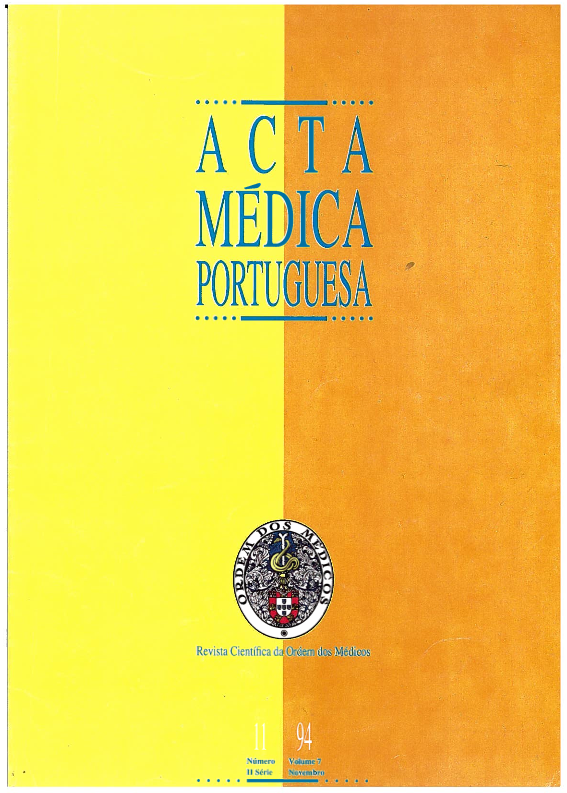Antiphospholipid immunization syndrome and thrombosis.
DOI:
https://doi.org/10.20344/amp.2979Abstract
The designation of Antiphospholipid Syndrome was first applied by Harris in 1987, to a clinical status characterized by the detection of anticardiolipin and/or lupus anticoagulant with clinical thromboembolic manifestations. Recent advances in its study has shown that the inducing antigen is really a complex of phospholipid and protein. Therefore, it became clear that there is a need for a protein cofactor to the formation and action of antiphospholipid antibodies (APL). The authors present a detailed revision of the nature and specificity of APL, described as its proteic counterpart. Their action is surely conditioned by the specific protein involved with phospholipids, as it may be with Beta 2-Glycoprotein 1, Prothrombin, Protein c and s, Anexin V and the association of plasminogen and t-PA. The isotype of immunoglobulins is also very heterogeneous, since it was detected as IgG as well as IgA and IgM immunoglobulins. Furthermore, they can coexist in the same patient and with no clear relationship with thromboembolic manifestations. These aspects demonstrate well the greater variability that is found in these patients in relation to clinical and laboratory manifestations of the disease. For laboratory diagnosis, micro ELISA systems were developed, allowing the identification of antiphospholipid immunoglobulins with relative specificity and accuracy. Finally, the most frequent clinical expression is described, emphasising the pitfalls of clinical and laboratory diagnosis of the antiphospholipid syndrome.Downloads
Downloads
How to Cite
Issue
Section
License
All the articles published in the AMP are open access and comply with the requirements of funding agencies or academic institutions. The AMP is governed by the terms of the Creative Commons ‘Attribution – Non-Commercial Use - (CC-BY-NC)’ license, regarding the use by third parties.
It is the author’s responsibility to obtain approval for the reproduction of figures, tables, etc. from other publications.
Upon acceptance of an article for publication, the authors will be asked to complete the ICMJE “Copyright Liability and Copyright Sharing Statement “(http://www.actamedicaportuguesa.com/info/AMP-NormasPublicacao.pdf) and the “Declaration of Potential Conflicts of Interest” (http:// www.icmje.org/conflicts-of-interest). An e-mail will be sent to the corresponding author to acknowledge receipt of the manuscript.
After publication, the authors are authorised to make their articles available in repositories of their institutions of origin, as long as they always mention where they were published and according to the Creative Commons license.









